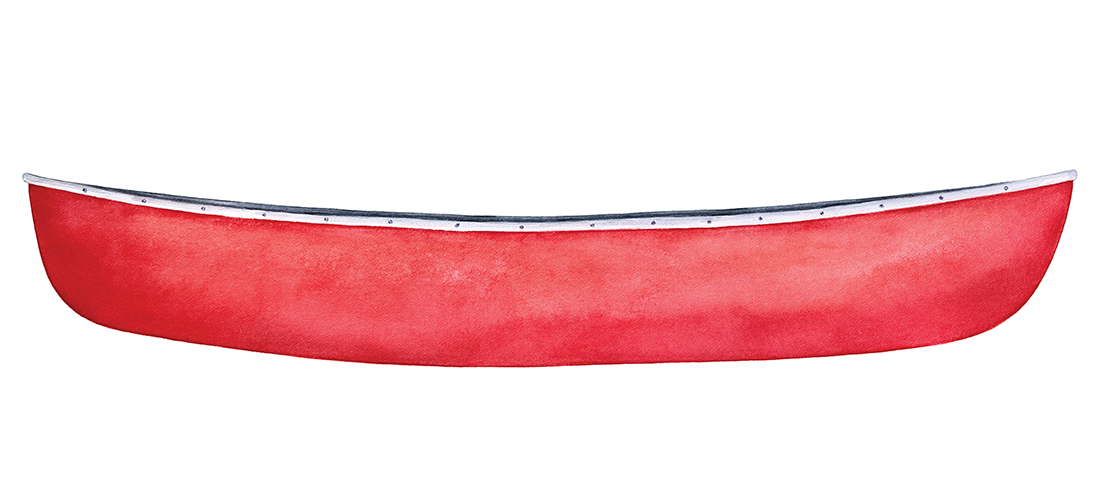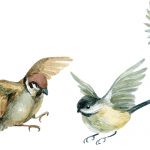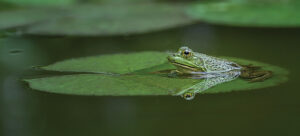
Easy Floatin’
A new canoe takes an old trip
By Tom Bryant
My new canoe slid into the blackwater river easily. I was pleased with the boat. She was quick but stable and promised to be a pleasure to paddle. It was early morning, and a soft mist drifted out of the ancient cypresses that lined the bank like river ghosts from days gone by. I tried to be extra quiet and not disturb wildlife that might be close. Downstream just around the bend, I could hear the raucous call of a wood duck; and in just a few seconds, a pair flew upriver, gaining altitude as they saw me and all my gear. They screamed indignantly at the interloper, headed toward the swamp and were gone. I’ve always had a hard time identifying a wood duck call from a hawk. They sound a lot alike.
It was a beautiful morning, not unlike the many mornings I had spent on the river long ago with my granddad. This was to be a kind of déjà vu adventure. Here I was with a new canoe on an old low country river that I hoped had not changed that much from the early times my grandfather and I paddled the same fast flowing water.
He had taught me how to paddle when I was a youngster. He had a fish camp located several miles from Galavants Ferry right on the banks of the Little Pee Dee; and during the summer when work on the farm slowed, we would get our gear together, or my granddad would, mostly. I’d be dispatched to the old catawba trees to pick fishing worms and to the tobacco fields to hustle up a bait can of tobacco worms. They were messy creatures. They had a habit of spitting tobacco juices when I plucked them off the leaves. This was way before pesticides became so prevalent, and usually I could fill up a can of worms, no pun intended, from three or four tobacco stalks. The catalpa worms were a different story. They were valued as much by fishermen farmers as their crops were, and in many cases, harvested just like their garden vegetables. The worms were superb fish bait.
Linda, my bride, had dropped me off at a boat landing I found on a map of the river and was to pick me up at Galavants Ferry later in the day. I had packed a lunch, typical of what Granddad and I would share back in those long-ago days. Sardines, Beanie Weenies, a slab of rat cheese, a loaf of crusty bread, a can of Vienna sausages, hot mustard, and for dessert, a pack of Moon Pies. Linda had given me a Yeti cooler for my birthday, and I had it filled with bottles of water, a couple of Pepsis, and a few cold beers. That was the only deviation I took from Granddad’s menu. He was a teetotaler, but I knew he would forgive my one indiscretion. I also put my small tackle box, a spinning outfit, and a bait-casting rod and reel in the bow of the canoe. I was ready for a great day on the water.
I was pleased with my new canoe, an Old Town Penobscot. She cut through the water and was really sensitive to the paddle. I could turn her on a dime, and I practiced several strokes as we floated down the fast flowing river. It’s just like riding a bicycle; once you learn, you don’t forget. I settled down and began enjoying the scenery.
The Little Pee Dee River actually starts in North Carolina. Drowning Creek is part of its headwaters and flows into the Lumber River. The Lumber flows into the Little Pee Dee, which merges with the Big Pee Dee, then next stop, the Atlantic Ocean at Georgetown, South Carolina. One time in my young carefree days, a couple of friends and I tried to paddle the entire stretch, but unfortunately, we had to pull up short due to lack of time and supplies. It was quite an adventure, though.
The river eventually moved slow but steady, and with a few strokes of the paddle, I could keep the boat in the middle and fish the banks with my spinning outfit. I caught a few bream, none big enough to keep; and after a short time, I put the rod down and just watched the wild river and the cypress trees back in the swamps as I floated south. It was just as I remembered, with the exception of maybe more trash floating in the sloughs. I was surprised at the numbers of waterfowl. I saw many wood ducks. Great blue herons were numerous, and every now and then, I could hear the plaintive cry of a pileated woodpecker.
Many years ago while floating this same stretch of water, Granddad pointed out a huge bird flying in a slow, loping style that many big woodpeckers have. It was heading across the swamp but lit on a decaying branch of a giant cypress and started pecking on the limb. Pieces of dead wood flew as if he were swinging an ax. Granddad said, “Son, that’s an ivory bill woodpecker. Wouldn’t surprise me if they don’t declare that particular bird extinct in a few years. That’s the first one I’ve seen in a long time on this river.”
I had just been letting the canoe go where it wanted with only a stroke of the paddle every now and then, but just ahead I could see the water pick up speed as it approached a tight bend to the right. I grabbed the paddle and eased the boat to the right bank to keep away from a tree that had fallen and was partially submerged, blocking the left bank route.
I don’t know who was more surprised, the old gentleman fishing off the sandbar that pushed way out in the river, or me as I silently came around the bend and was on him in an instant. The old guy had several cane poles anchored in the sand and was fishing in the lee of the bar. I moved the canoe out in the river to get out of his way and did a backstroke to slow the boat. “How they biting?” I asked.
“Well sir, they been kinda slow this morning.” I eased the boat closer to the downriver side of the bar.
“Mind if I join you for a minute?”
“Naw sir. Make yoself at home.” I dragged the canoe up on the sand and went back to talk to the ancient fisherman.
“You’ve got a nice setup here.”
“Yassir, I’ve been doing it for a lotta years. It’s restful and sometimes I catch myself some supper.” He grinned and looked up at me from the little stool he was sitting on. “You floating down the river?”
“Yep, going to Galavants Ferry. Three or four more hours, I reckon.”
“That’s about right. Watch out for blown-down timber. We suffered a might in the last big storm.”
We chatted for a little while and I found out the fisherman was a local. As a matter of fact, he had lived on the river all his life, or as he put it, “Not quite, but that’s the plan, with what I got left.” He was a happy soul.
The rest of the paddle was uneventful. I didn’t even try to fish the remainder of the trip. I had to portage around a couple of downed trees, saw a humongous cottonmouth snake that I gave plenty of room, and arrived at the ferry about 4 o’clock. Linda was waiting, and in no time, I had the canoe lashed on top of the Cruiser, and we headed down to Huntington Beach, where we were camped with the little Airstream.
Later that evening, while kicked back in a rocker under the awning of the Airstream, I thought back to the day’s adventure on the river and to the aged philosopher I met fishing. Right before I left him and paddled downstream, the old fellow and I were talking about changes in the area, good and bad. He said something that brought everything into perspective.
“Mister, this river was flowing to the ocean long befo I came along and will be flowing to the ocean long after I’s gone. The important things don’t change, I reckon.” PS
Tom Bryant, a Southern Pines resident, is a lifelong outdoorsman and PineStraw’s Sporting Life columnist.





